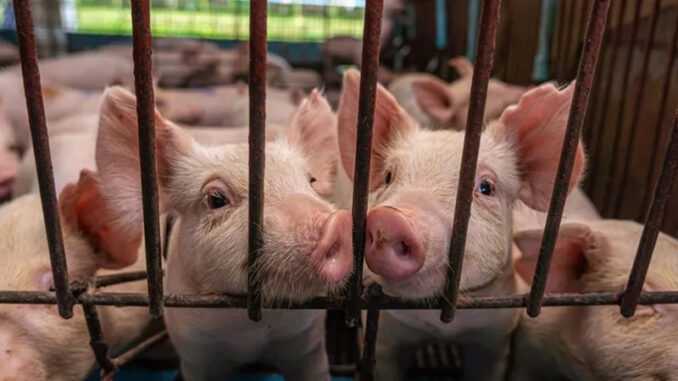
The Department of Agriculture (DA) ordered the Bureau of Animal Industry (BAI) to refine its vaccination protocol to expedite the rollout of the African Swine Fever (ASF) vaccine developed in Vietnam.
Blood tests conducted on pigs inoculated in Lobo, Batangas, the epicenter of the latest ASF outbreak, showed that vaccinated hogs developed sufficient antibodies to combat the ASF virus.
The DA initially purchased 10,000 doses of AVAC live vaccines in August as part of a broader plan to distribute at least 600,000 vaccine doses.
The vaccine rollout aimed to eradicate the ASF virus, which devastated the local hog population since its first outbreak in 2019.
Agriculture Secretary Francisco Tiu Laurel Jr. said many backyard hog raisers remained hesitant to participate in the vaccine rollout due to negative publicity and concerns about their pigs being slaughtered if infected.
“We’re hopeful that impending changes to the vaccination protocol will finally accelerate the vaccine rollout and address our problem with this stubborn virus,” the DA chief said.
BAI data show that 30 provinces still have active ASF cases.
Local hog farmers and swine industry groups earlier asked the DA chief to push for an emergency use authorization (EUA) of the Vietnamese ASF vaccine.
AGAP Partylist Rep. Nicanor Briones, in a letter addressed to the DA secretary, requested that President Ferdinand Marcos Jr. declare the ASF outbreak a national emergency, a necessary step to enable the issuance of an EUA.
The groups argued that an EUA is crucial for rapid and widespread vaccination, particularly among backyard farmers who have been disproportionately affected by the disease.
“The Vietnamese vaccine has shown promising results in trials both here and in Vietnam. An EUA would allow us to protect millions of pigs and help our struggling hog farmers recover,” Briones said.
They noted the urgency of the situation and the potential of the vaccine to revitalize the industry and ensure food security.


Be the first to comment